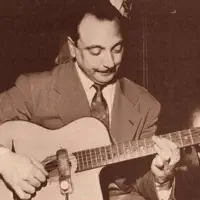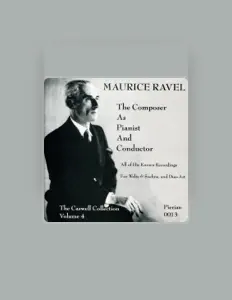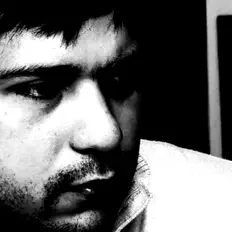
Classical
France
Maurice Ravel
Top-Songs von Maurice Ravel
Weitere Alben von Maurice Ravel
Über Maurice Ravel

Heimatort
Ciboure, France
Geburtstag
1875
Genre
Classical
Stravinsky compared Ravel’s mind to that of a Swiss watchmaker. But behind its exquisite, super-refined surface, Ravel’s music can also convey strange dark passions and profound melancholy. He was born in Ciboure, France, near the Spanish border, in 1875, of half-Basque parentage—a fact of which he remained intensely proud. He studied at the Paris Conservatoire, but succeeded only in annoying his teachers, leading to his expulsion in 1895. He was readmitted two years later, however, and his new teacher, Fauré, proved both understanding and inspiring. Along with his contemporary Debussy he formed an artistic group called Les Apaches (“The Hooligans”) who caused controversy, but his failure, after five attempts, to win the coveted Prix de Rome became a national scandal. Ravel remained emotionally guarded, and the nature of his sexuality remains a mystery. Though he composed slowly, Ravel produced a steady stream of masterpieces in several genres, especially opera (including the weirdly magical L’enfant et les sortilèges [1925]), chamber and orchestral music (notably two piano concertos, La Valse [1920] and the famous Boléro[1928]), songs, and solo piano pieces. His fondness for exotic, fragile, dreamlike atmospheres earned him the label “Impressionist,” though he strongly disliked it. In the 1930s, Ravel began to suffer from dementia, and his final years were a story of pitiful, lonely mental decline. He died in 1937.
Beeinflusst von Maurice RavelMaurice Ravel hat die Musik von Django Reinhardt, George Gershwin, Bill Evans und anderen beeinflusst.
Ähnlich wie: Maurice Ravel
Entdecke mehr Musik und Künstler, die Maurice Ravel ähnlich sind, wie Theodore Navarro, Lamoureux Orchestra, Seid Muhammad Shah






















































![Hör dir „Romantic Extreme, Vol IX: Storm of the Heart (Chopin, Liszt, and other composers) [2025]“ von Gerardo Taube Horowitz an Hör dir „Romantic Extreme, Vol IX: Storm of the Heart (Chopin, Liszt, and other composers) [2025]“ von Gerardo Taube Horowitz an](https://is1-ssl.mzstatic.com/image/thumb/Music221/v4/c3/4b/7b/c34b7bf9-7189-275b-ee45-aa80209a02e6/5063766123760_cover.jpg/276x276bb.webp)










































































